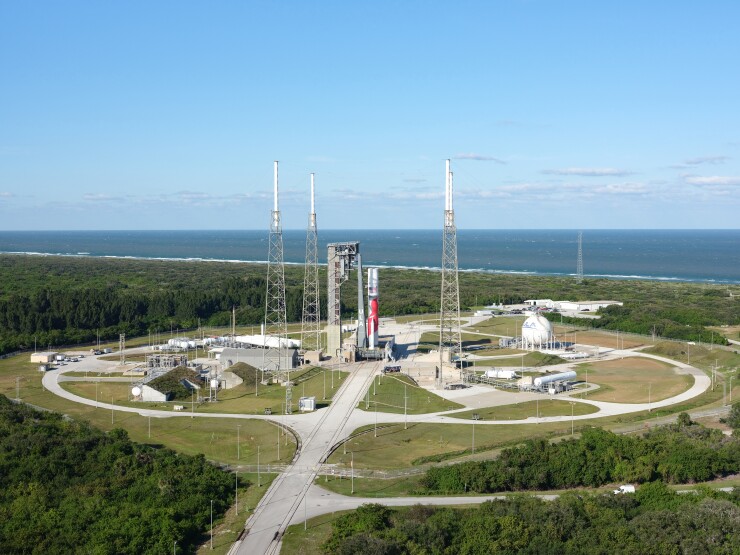
The Trump administration's efforts to shed office space as part of wider cost-cutting measures brings uncertainty for holders of a substantial yet esoteric corner of the municipal bond market — revenue bonds backed by federal lease payments.
Moody's Investors Service warned in a
Moody's rates between $2.5 billion and $3 billion of federal lease-backed bonds. Most of the debt is taxable and structured with large bullet maturities that will require refinancing, asset sale or lease renewal at the time of maturity to avoid default, said Moody's analyst Dan Kowalski.
Outside of the muni market, many federal lease bonds are privately placed and held by entities like banks and insurers.
It remains to be seen how the effort to trim federal office space, a trend that began under the Biden administration, will fare as federal employees begin to return to work under President Donald Trump's return-to-work order.
"If there's a broader trend to return-to-work that stands to be a positive driver of the office market, especially in the [Washington] D.C. area, federal leases that benefit will be weighed down somewhat by reductions in workforce and the real estate portfolio," said Moody's analyst Baye Larsen. "We don't know yet the net impact of those positive and negative influences on the office market, but it's something that we're watching."
The effort to shed leases is expected to accelerate as Elon Musk's Department of Government Efficiency scours for savings. The DOGE account
The Trump administration in early February told managers for the General Services Administration, which manages the government's real estate, to begin terminating leases on all federal offices nationwide.
Michael Peters, commissioner of Public Buildings Service in the General Services Administration, announced recently that the agency may cut up to half of its total real estate portfolio over the coming years, including leased space and government-owned assets.
Moody's said it expects so-called soft term leases, which may be terminated with short notice, to be more affected than so-called firm term leases, which may not be terminated for convenience. All of Moody's-rated federal lease bonds are backed by firm terms. The agency said direct agency leases not through the GSA are "more insulated from expedited termination orders."
Moody's rates 28 federal lease revenue bonds, including 12 GSA leases and 16 agency direct leases.
More than half of GSA leases have expirations or termination options before the end of 2028 and roughly 25% of GSA owned and leased space is in the Washington D.C. area, Moody's said.
A chunk of bonds issued for the National Aeronautics and Space Administration's headquarters in 2022 are getting battered on the secondary market amid the uncertainty surrounding the agency's decision to renew its lease. The $275 million borrowing, issued through Wisconsin's Public Finance Authority, features a 6.145% coupon and comes due with a bullet maturity in 2028.
Even before Trump took office, NASA announced it was looking for new headquarters in or around D.C. when its current lease expires in August 2028. Uncertainty around the agency's future home prompted Moody's to downgraded the debt to junk last March and then again on Feb. 2, this time to B2 from Ba2.
The NASA debt traded Wednesday at 55 with a 26% yield — down from 76 in September and 97 last February.





